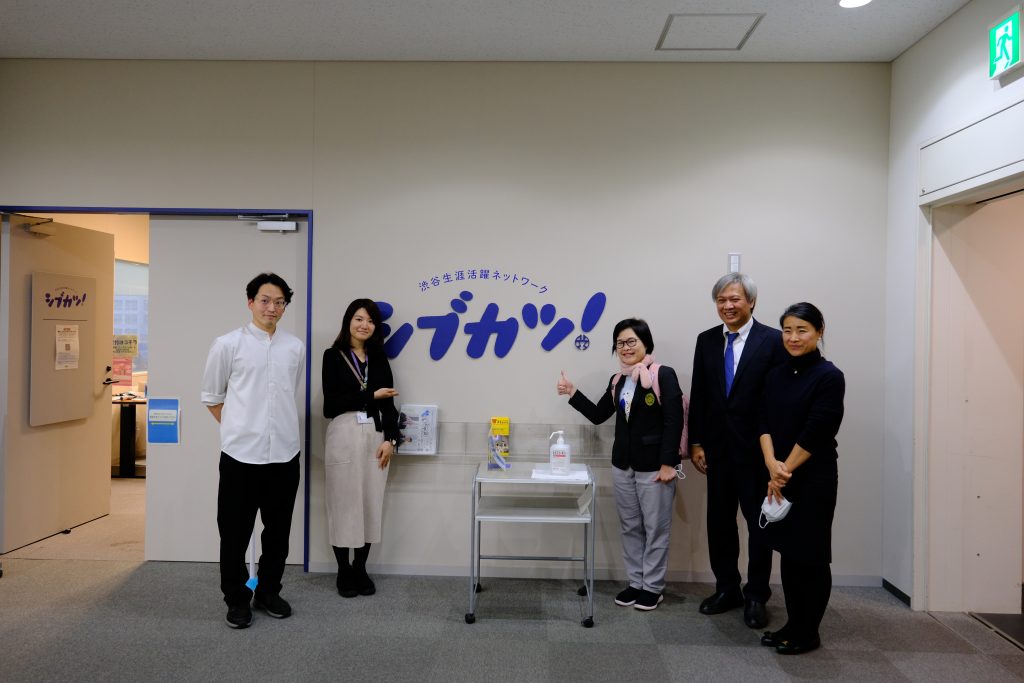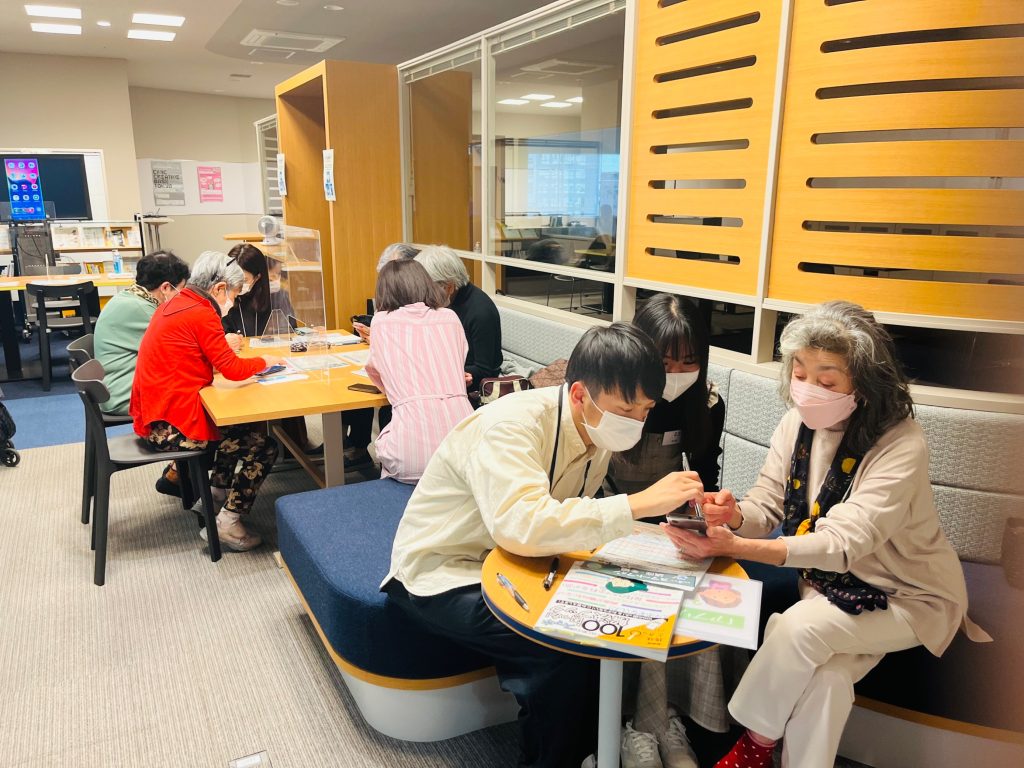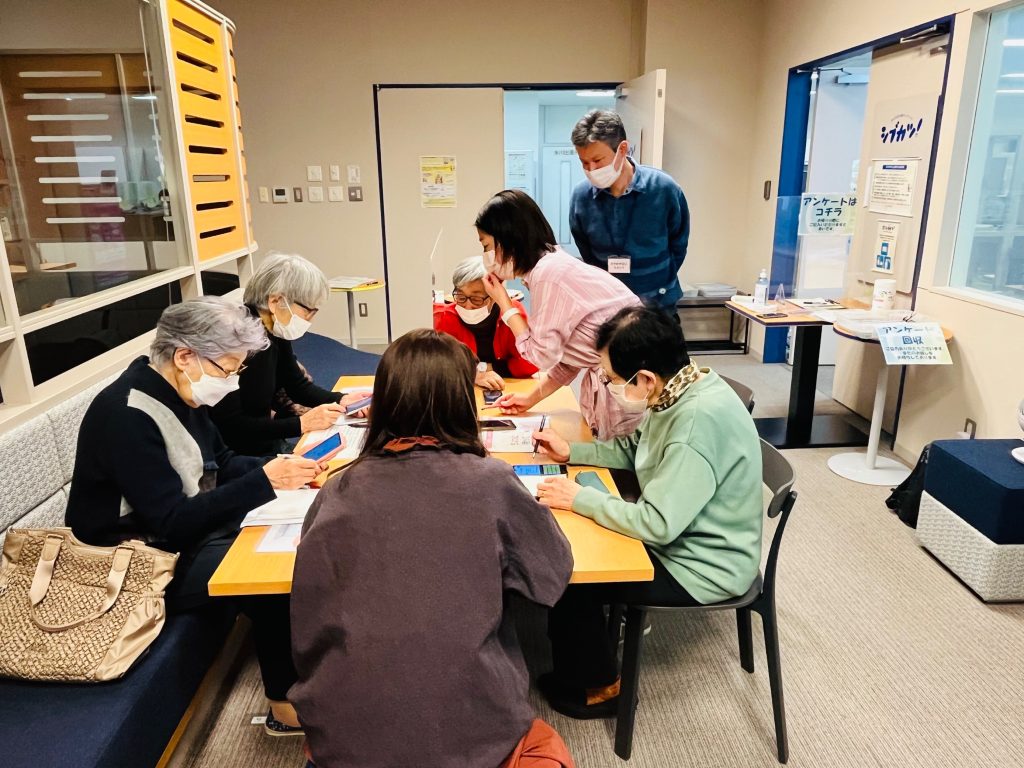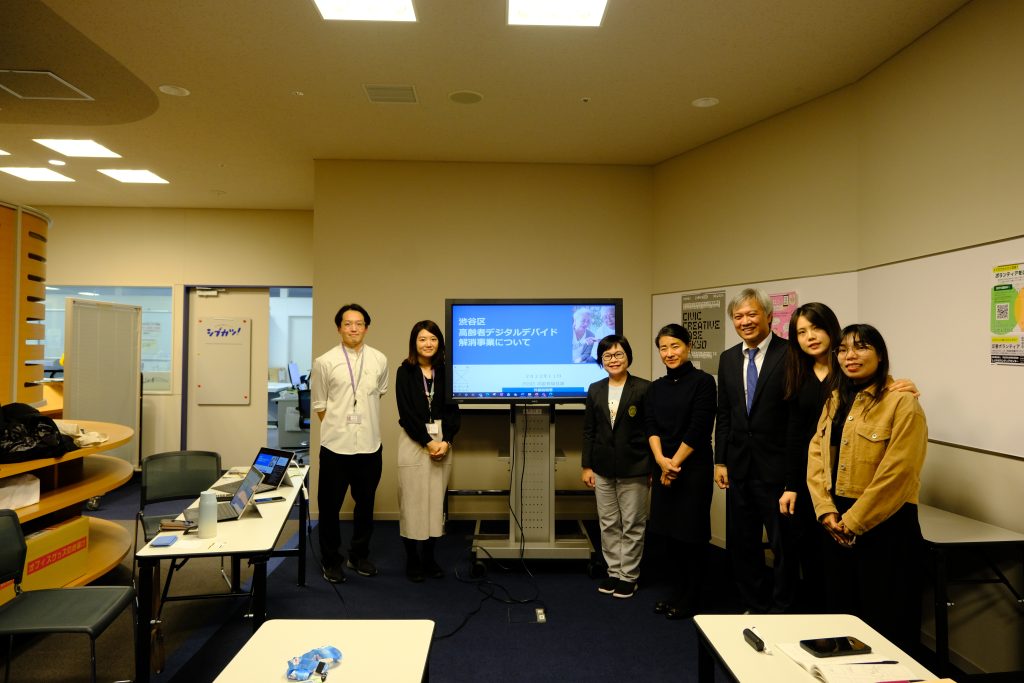DIHAC study Japan and Thai teams observed digital empowerment program at Shibuya city, Tokyo, Japan
To enable older persons using mobile phones and digital devices is a global need for healthy ageing, continuity of social inclusion, and sustainable quality of life. It has never been more urgent than before to bring every senior online. A great example is learnt at the Shibuya Ward, Tokyo where the project for eliminating the digital gap among the older persons is being implemented. (1)
Digitally Inclusive, Healthy Ageing Communities (DIHAC) Japan and Thai teams observed digital empowerment program for senior citizen at Shibuya city, Tokyo, Japan on 29th November 2022. DIHAC Japan team welcomed Dr Saiyud Moolphate, MPH, PhD who is the Head of the Department of Public Health, Faculty of Science and Technology, Chiang Mai Rajabhat University, Thailand and Thai investigator DIHAC study during her visit to Juntendo University and Japan for research in population ageing.
DIHAC Japan team PI Associate Professor Myo Nyein Aung, co-Pi Dr Yuka Koyanagi, DIHAC researchers Dr Myat Yadana Kyaw, and Li Li , who are PhD students from Juntendo University observed the program together with Dr Saiyud.
Project leader Maruyama Yoko and Deguchi Yasumasa from the Elderly Welfare Division of Shibuya Ward explained about the training in details.

Photo: Project leaders of Shibuya ward’s “Project to eliminate the digital divide for the elderly” and DIHAC investigators
Cross-cultural exchange consisted of digital inclusion effort in Shibuya city and DIHAC study experiences in Thailand, Singapore, Korea and Japan.
This program brought about by the Shibuya Ward, Tokyo aimed to eliminate the gray digital gap. Promoting the use of smartphones among older people could establish a healthier and happier new normal lifestyle, especially during the pandemic, thereby promoting the quality of life of older people. The provision of smartphone rental and training sessions for smartphone use would increase the accessibility and adoption of smartphones for older people. Shibuya Ward offered the training sessions in groups and individualized with carefully designed curricula for the digitally inclusive daily life of older people, from basic use of smartphones to disaster information and social media usage.
In the interim report of the program, after 10 months of using smartphones, 80% of the participants responded to have a positive impact on their daily life and increased their desire to use social media apps such as LINE for communication. (2) Being the first one to be rolled out in Japan, it is a landmark and an example for cities and municipalities worldwide.

Photo: Individual training (Photo courtesy of the Elderly Welfare Division of Shibuya Ward)

Photo: Group training (Photo courtesy of the Elderly Welfare Division of Shibuya Ward)

Photo: Project leaders of Shibuya ward’s “Project to eliminate the digital divide for the elderly” and DIHAC team
We hope this message will bring the landmark project news to global communities constructing the digitally inclusive healthy ageing communities.
Reference
(1) 高齢者デジタルデバイド解消事業. 12.12.2022]; Available from: https://www.city.shibuya.tokyo.jp/kurashi/koreisha/dejitarudebaidokaisyou.html.
(2) 渋谷区高齢者デジタルデバイド解消に向けた実証事業の中間レポート 12.12.2022]; Available from: https://www.city.shibuya.tokyo.jp/assets/kusei/000068031.pdf
